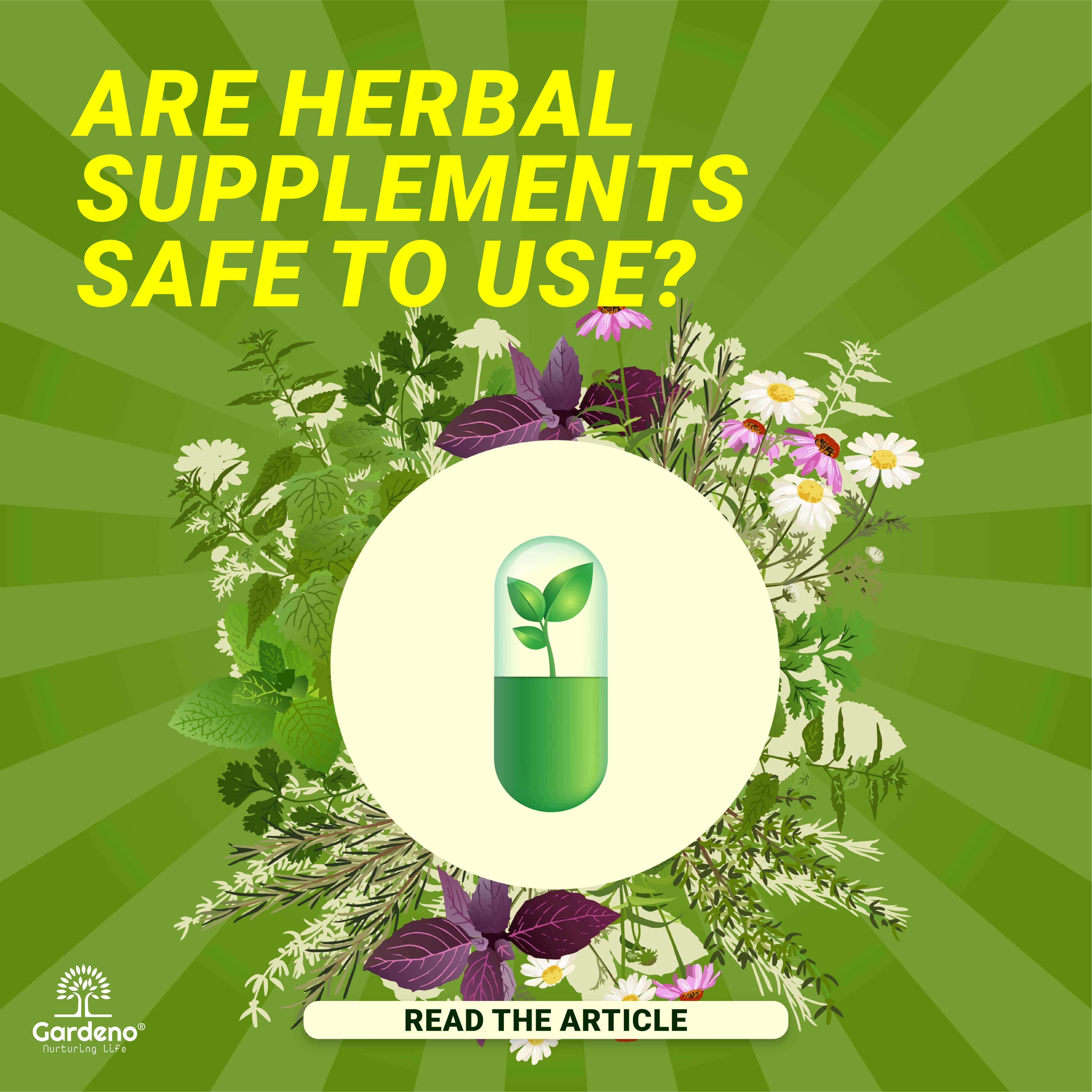

Are Herbal Supplements Safe To Use?
Millions of people use herbal and vitamin supplements every day in order to take control of their health. But with this comes the question about the safety of these products. So, are herbal supplements safe to use?
What are herbal supplements?
Herbal supplements as the name implies are supplements derived from natural sources. These sources are usually plants or some part of a plant. They can range from roots to seeds to flowers. Supplements are designed with the health benefits of the root ingredient in mind.
If taken as designed, herbal and vitamin supplements can be beneficial to your health.
What about vitamin supplements?
Vitamin supplements are just that. Supplements that provide vitamins that you might be lacking. For a healthy and balanced diet, a person needs a wide variety of nutrients daily. However, they might not be able to get all the required vitamins purely from their diet.
As such, people will go to their local vitamin & supplements store to get the essential nutrients that their body needs to function effectively.


Are Herbal Supplements Safe To Use?
It must be said that supplements are meant to complement a healthy diet, not replace them. Taking supplements will not counteract an unhealthy lifestyle. There are various supplements out there that can actively be harmful to your health.
- Combining various supplements together can have the ingredients react to each other causing negative effects to the body.
- Taking too much of any vitamin can cause damage to your body.
- Combining medication and supplements without your doctor’s approval.
- People at risk of certain diseases.
- Pregnant women should avoid certain supplements
While there are supplements out there that can be damaging to your overall health, there are supplements that have many positive effects on your health.
- Doctors recommend that pregnant women or women of childbearing age can take folic acid supplements to prevent any birth defects.
- Vitamin D deficiency is very common in the general population. In hotter countries, the percentage of people with vitamin D deficiency is even higher. Taking vitamin D supplements can help people who don’t have receive enough in their daily life.
- Ashwagandha supplements are considered to be safe for most people by doctors. These supplements can help lower the cortisol levels in your body and have many anti-inflammatory benefits. However, pregnant women and people with thyroid issues should skip this one.
- Omega 3 fish oil supplements can help people get the essential omega-3 fatty acids every day. Their benefits include help with inflammation, removing excess fat from your liver, and baby development. However, people with certain heart diseases should consult their doctor before taking them.
Are there any conditions in which I can take herbal supplements?
There are many conditions out there in which you can take herbal supplements to manage your symptoms. People with diseases like arthritis and diabetes rely on various herbal and vitamin supplements to help alleviate their symptoms. Some herbal supplements for diabetes can help you lower your blood sugar while curcumin supplements are used as pain relievers.
Herbal and vitamin supplements have risks attached to them, but they also have many health benefits. For patients with serious health conditions consult with your doctor before taking any. While supplements are not a replacement for a healthy lifestyle, they can be a great addition to your diet if you need them.



